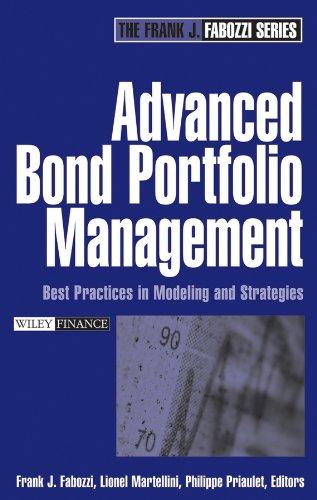


Another question is who will actually be the person filing the lawsuit. This person is referred to as a (12). Will it be the injured child or his parents? Typically, the parents, as guardians, will sue on behalf of the child. Since Ron is being sued, he will be the (13). Regardless of the technical issue of who is the proper person to sue, this is a relatively sympathetic case and Ron may have considerable exposure due to sympathy considerations although he may have no legal culpability. Therefore, before proceeding to litigation, he 4811-6136-261471 JED(25608034 immunou anoncom vom your marraum munauyenvuru un uomo auauomu should consider whether any type of (14) procedures are available. If so, Ron should try (15), because this will afford him the opportunity to see if the matter can be settled with the help of a (16) without having an adverse determination on the merits of the claim or lawsuit. Alternatively, if he wants to hear the dispute to a final determination outside of the court system, we may want to consider (17). This can either be (18), where the case is heard and decided by the arbitrator and the decision, called an (19), is a final decision enforceable by the court. On the other hand, Ron might want to choose (20), whereby if either side is unhappy with the resolution they can still seek to have the case heard in court. There are two major service providers who can provide these services. I have checked and the (21) which is the service provider that has a longer history than the other next mentioned has offices in New York. However, we might want to hire a retired judge from (22) JUJUU, VIII VEULIINILULILIVYL motion for summary judgment Answers: motions to exclude/in limine non-binding arbitration Notice of Appeal opening statement order of examination (OEX) peremptory challenges personal property lien personal service plaintiff privileged procedural rules 10 years 10% absolute privilege abstracts of judgment alternative dispute resolution American Arbitration Assoc. arbitration award binding arbitration bond or undertaking cause of action challenge for cause civil law system claim of relief clerk's transcript case law common law system complaint concurrent jurisdiction cross-complaint cross-examination default default judgment calendar defendant process server qualified privilege renewed reporter's transcript request to enter default request to produce service by publication service of process statute of limitations statutes subpoena substantive substantive rules Concurrent jurisdiction service or process statute of limitations statutes subpoena substantive substantive rules substituted service summons the rights and benefits U.S. Constitution cross-complaint cross-examination default default judgment calendar defendant deposition direct examination discovery diversity of citizenship due process exclusive federal jurisdiction interrogatories JAMS JNOV judgment by default jurisdiction jury instructions long arm statute mediation verdict voir dire work product privilege writs of execution mediator minimum contracts Another question is who will actually be the person filing the lawsuit. This person is referred to as a (12). Will it be the injured child or his parents? Typically, the parents, as guardians, will sue on behalf of the child. Since Ron is being sued, he will be the (13). Regardless of the technical issue of who is the proper person to sue, this is a relatively sympathetic case and Ron may have considerable exposure due to sympathy considerations although he may have no legal culpability. Therefore, before proceeding to litigation, he 4811-6136-261471 JED(25608034 immunou anoncom vom your marraum munauyenvuru un uomo auauomu should consider whether any type of (14) procedures are available. If so, Ron should try (15), because this will afford him the opportunity to see if the matter can be settled with the help of a (16) without having an adverse determination on the merits of the claim or lawsuit. Alternatively, if he wants to hear the dispute to a final determination outside of the court system, we may want to consider (17). This can either be (18), where the case is heard and decided by the arbitrator and the decision, called an (19), is a final decision enforceable by the court. On the other hand, Ron might want to choose (20), whereby if either side is unhappy with the resolution they can still seek to have the case heard in court. There are two major service providers who can provide these services. I have checked and the (21) which is the service provider that has a longer history than the other next mentioned has offices in New York. However, we might want to hire a retired judge from (22) JUJUU, VIII VEULIINILULILIVYL motion for summary judgment Answers: motions to exclude/in limine non-binding arbitration Notice of Appeal opening statement order of examination (OEX) peremptory challenges personal property lien personal service plaintiff privileged procedural rules 10 years 10% absolute privilege abstracts of judgment alternative dispute resolution American Arbitration Assoc. arbitration award binding arbitration bond or undertaking cause of action challenge for cause civil law system claim of relief clerk's transcript case law common law system complaint concurrent jurisdiction cross-complaint cross-examination default default judgment calendar defendant process server qualified privilege renewed reporter's transcript request to enter default request to produce service by publication service of process statute of limitations statutes subpoena substantive substantive rules Concurrent jurisdiction service or process statute of limitations statutes subpoena substantive substantive rules substituted service summons the rights and benefits U.S. Constitution cross-complaint cross-examination default default judgment calendar defendant deposition direct examination discovery diversity of citizenship due process exclusive federal jurisdiction interrogatories JAMS JNOV judgment by default jurisdiction jury instructions long arm statute mediation verdict voir dire work product privilege writs of execution mediator minimum contracts









